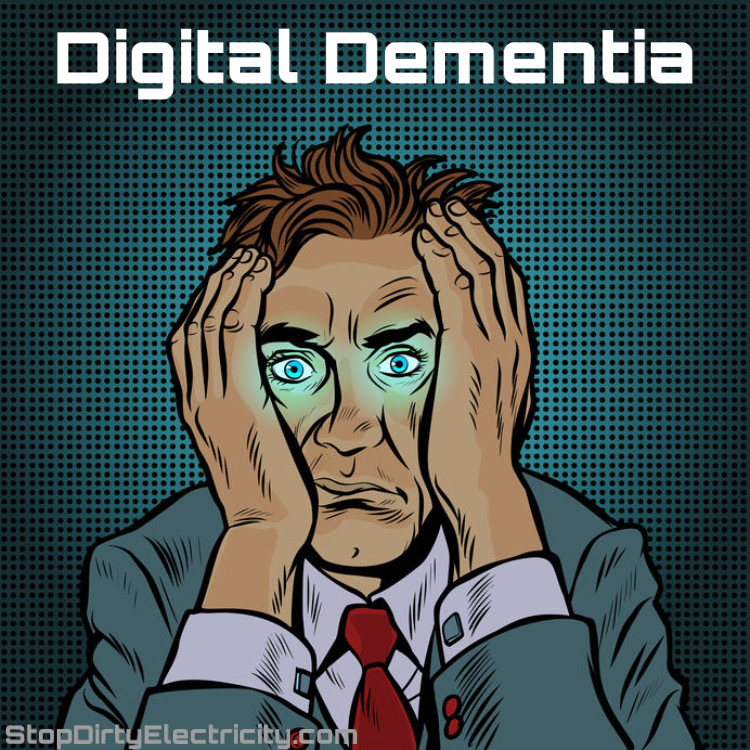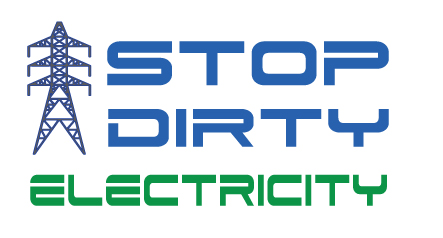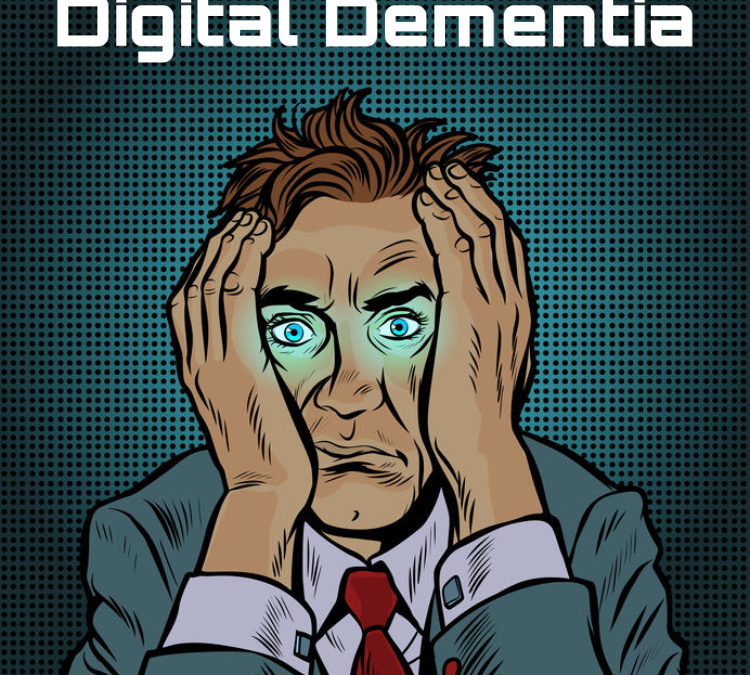Overuse Of Technology Can Lead To

Have you ever heard a scatter-brained, stressed out friend mutter ‘I have such ADD today’? It’s become all too common to dismiss our flustered, uninterrupted lives as just part of the everyday new normal. Undeniably, modern society is dictated by our constant connection to technology. Plain and simple, we are married to it ““ for better or worse. But it’s actually quite serious. In fact, more and more young people who’ve been raised in a digital age are showing signs of short term memory dysfunction as a result of their addiction to technology. What can be done and what does this mean for future generations?
An eye-opening study in Seoul, Korea ““ where more people are connected to digital devices (over 67%) than anywhere in the world ““ as well as U.S. study conducted at UCLA has revealed some alarming information about the developing brains of young people. They’re spending upwards of 7 hours a day attached to their iPads, smartphones, computers and gaming consoles. And the effects to their brains are proving to be very damaging.
It’s Called Digital Dementia
“Digital Dementia”, a term coined by top German neuroscientist Manfred Spitzer in his 2012 book of the same name, is a term used to describe how overuse of digital technology is resulting in the breakdown of cognitive abilities in a way that is more commonly seen in people who have suffered a head injury or psychiatric illness.
Have you ever heard a scatter-brained, stressed out friend mutter ‘I have such ADD today’? It’s become all too common to dismiss our flustered, uninterrupted lives as just part of the everyday new normal. Undeniably, modern society is dictated by our constant connection to technology. Plain and simple, we are married to it ““ for better or worse. But it’s actually quite serious. In fact, more and more young people who’ve been raised in a digital age are showing signs of short term memory dysfunction as a result of their addiction to technology. What can be done and what does this mean for future generations?
An eye-opening study in Seoul, Korea ““ where more people are connected to digital devices (over 67%) than anywhere in the world ““ as well as U.S. study conducted at UCLA has revealed some alarming information about the developing brains of young people. They’re spending upwards of 7 hours a day attached to their iPads, smartphones, computers and gaming consoles. And the effects to their brains are proving to be very damaging
Individuals who rely heavily on technology may suffer deterioration in cerebral performance such as short term memory dysfunction. While many of us grew up remembering phone numbers and other key information simply by memorizing it, most kids today have grown up not needing to remember things like phone numbers because we have devices that do it for us.
“Over-use of smartphones and game devices hampers the balanced development of the brain,” Byun Gi-won, a doctor at the Balance Brain Center in Seoul, told the JoongAng Daily newspaper.
It may seem like an easy way out, but can lead to development of the rational, linear, fact-finding skills of the left side of the brain at the expense of the right side which is more intuitive, imaginative and emotional.
The U.S. study blamed modern lifestyles for the problem ““ saying that spending time on a computer and texting prevents people focusing and memorizing information.
They also blamed stress, saying hectic lifestyles prevent concentration information retention.
A growing number of adults, too, are susceptible to constant connection and overuse of technology which can lead to lateralization of brain function which means the brain suffers imbalance. Damage to the right side of the brain is associated with deficits in ability to concentrate, short attention, memory span, and emotional disturbances, such as depression.
How many of us have a smartphone filled with our contacts whose phone numbers we can readily access but we don’t truly know? Or what if we can’t remember the name of the lead actress in a favorite film? Instead of spending the extra few minutes to recall that information organically “” by accessing our natural memory and using our brain “” we just go look it up on Google.
We’ve become terrifyingly dependent upon technology to the point that we are ruining our brains.
Can Digital Dementia Be Reversed?
Current thinking seems to say it can. So that means that many of us, including kids who grew up with technology and those of us who adopted it in our later lives as part of living in the modern world, may not be destined to digital dementia indefinitely after. But if we are to reverse the damage, we must take an active “” rather than passive “” role in the health of our brains.
And we need to start right now.
So how can we do this? Manfred Spitzer asserts that all digital technology should be removed from classrooms. That seems unlikely. But, according to neurologist Dr. Carolyn Brockington from St. Luke’s Roosevelt Medical Center in New York City, we can do other things simply by ‘exercising our brains.’ For example,
1. Use Your Head. Retrieve information from your brain organically ““ rather than automatically turning to Google to look up that actress you can’t remember immediately. Sit there and concentrate until you can recall it.
2. Crack Open a Book. That’s right. Reading an actual book rather than a tablet has been shown to improve memory retention.
3. Learn a new language. Putting you outside your comfort zone helps your brain work harder, which makes you smarter.
4. Play a new instrument. Instruments require the use of both side of the brain ““ like the piano or the guitar, for example, which help strengthen and balance it.
5. Get physical. Physical exercise increases blood flow and accelerates the transport of vital nutrients to your brain.
Essentially, we need to be doing anything that can lead to the healthy restructuring or ‘rewiring’ of our brains. We need to be spending less time relying on technology and more time relying on our brain power.
What Can You Do Today?
Use it or lose it, the experts contend. The brain, just like a muscle in our body, can atrophy if we don’t use it.
Perhaps consider a digital sabbatical “” like Baratunde Thurston did which was famously published in Fast Company last summer. Although it’s not easy or ideal for most of us who are ‘plugged in’ due to our jobs and the needs of the modern world, we should, at the very least unplug during the weekend. Work can “” and should “” wait. Facebook can wait. If we focus instead on having real conversations, reading books, getting out into nature, and disconnecting from technology, we will be taking care of our brain health and our emotional health as well.

